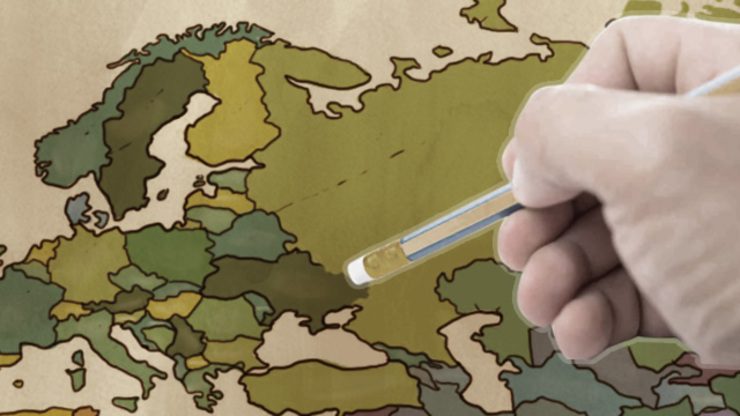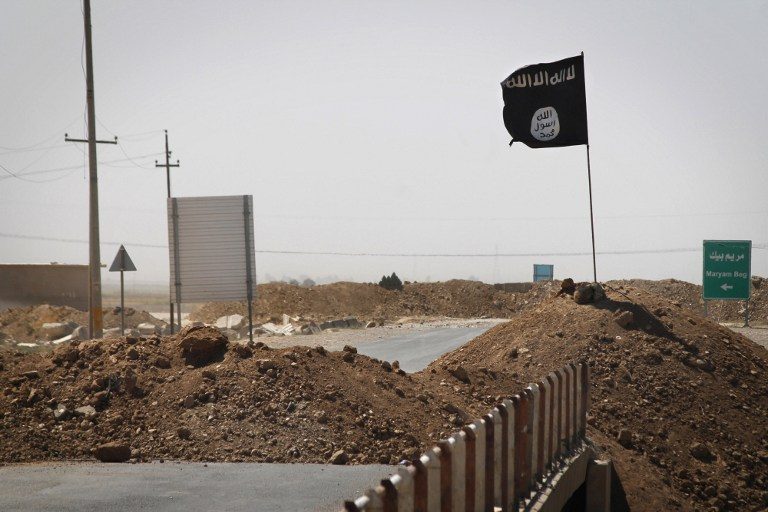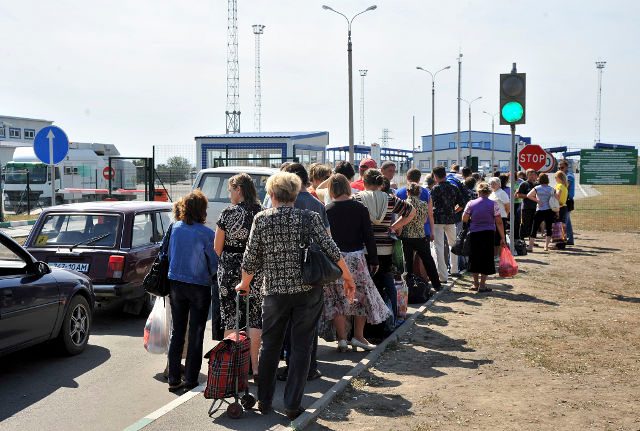SUMMARY
This is AI generated summarization, which may have errors. For context, always refer to the full article.

PARIS, France – Borders are supposed to be sacrosanct the world over but 2014 saw boundaries in Ukraine, Iraq and Syria thrown into question, raising fears of a new world order.
Yet experts say such concerns are overblown.
Russia’s quick-fire annexation of Ukraine’s Crimean peninsula in March drew a chorus of outrage and a diplomatic war-of-words. But the fury failed to reverse the situation or prevent a Moscow-influenced separatist conflict from breaking out in the country’s east.
In June, a lightning offensive across northern Iraq by Islamic State (ISIS) jihadists and their proclamation of a caliphate spanning ISIS-controlled territory in Iraq and neighboring Syria sent shivers down the West’s spine.
“The borders that were designed by the British and the French rather arbitrarily a century ago are now being decisively challenged by ISIS,” said Robin Wright, a scholar at the United States Institute of Peace and the Wilson Center.
“The basic question is whether Iraq and Syria can ever be revived with their contemporary, modern borders.”
Wright was referring to the secret Sykes-Picot deal that Britain and France signed in May 1916 carving up the Middle East.
In June, members of ISIS posted a photo series online of militants bulldozing a berm dividing Iraq and Syria, entitling it “Smashing the Sykes-Picot border”.
‘Zones where state is absent’
Wright, who has interviewed hundreds of people from all walks of society in the Middle East to get an idea of the changing nature of the region, redrew the map to reflect what could happen and published it last year in The New York Times Sunday Review.
In the map, she illustrated how Libya, Iraq, Syria, Saudi Arabia and Yemen could divide into 14 countries, for instance Kurdistan over the north of Iraq and Syria, and even “Sunnistan” and “Shiitestan” – and that was before the ISIS sweep.

She also underlined “the unleashing of political forces in countries that were not ready, prepared or able to make historic transitions, most notably Libya”, which has plunged into lawlessness since the 2011 NATO-backed overthrow of Moammar Gaddafi.
For Michel Foucher, a Paris-based geographer, borders in the area have not been called into question yet.
“But there are zones where the state is absent, which more or less organized groups have rushed into,” he said.
Philip Steinberg, Director of Durham University’s Centre for Borders Research, pointed out that borders have had a long history of being adjusted.
“In terms of broader systemic change, even if we look at what would seem to be the most radical of these examples, Islamic State, it’s fascinating that they call themselves Islamic ‘State’,” he said.
“Some of the first things they have been doing is establishing classic state institutions, passports, currency, all those things we expect bordered states to do.
“In a lot of ways, they acknowledge the world of borders.”
Kosovan precedent for Ukraine

Where Ukraine is concerned, Russia’s involvement in the deadly crisis has sparked concern that Moscow is on a mission to regain influence over what used to be the Soviet sphere and stop the European Union’s expansion east.
Before it even intervened in Ukraine, Russia’s dominance over Georgia’s breakaway regions of Abkhazia and South Ossetia, and its move to set up an Eurasian Union as an alternative to the EU – including Armenia, Belarus and Kazakhstan – had already sent tongues wagging.
But Foucher pointed out that while Moscow has been accused of disregarding international law with its annexation of Crimea, NATO countries are not white as snow either.
In 1999, they intervened in Serbia and its province of Kosovo to end unrest between the two and stop the persecution of Kosovar Albanians, eventually leading to Kosovo’s unilateral declaration of independence in 2008.
“In a sense, the principle of the inviolability of borders… was not respected where Serbia was concerned because Kosovo was a province that was detached by force,” said Foucher.
He added that Kosovo was used by the Kremlin as a precedent for its involvement in Ukraine.
Ultimately, said Steinberg, “stability is almost always in the interest of those who currently have a degree of power”.
Raed Fahmi, a former Iraqi minister, recently pointed out that Arab nationalists long called for Arab unity and for the elimination of arbitrary borders but failed.
And “later on all leaders focused on enhancing their power within each individual Arab country”. – Rappler.com
(Map and “erasing hand” image courtesy of ShutterStock)
Add a comment
How does this make you feel?
There are no comments yet. Add your comment to start the conversation.